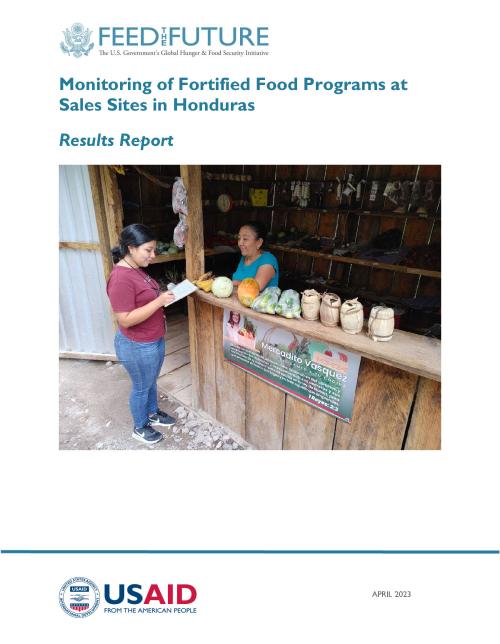Published By:
USAID Advancing Nutrition
Publication Date:
Technical Report
Honduras
English
Food fortification is one of the most cost-effective strategies, when correctly implemented and under the appropriate conditions, to address micronutrient deficiencies. Since the 1960s, Honduras has had public health programs for food fortification. However, these programs were not active all the time. In the 1990s, programs for salt and wheat flour were reactivated, and one for sugar was introduced. Currently, in Honduras salt must be fortified with iodine; sugar with vitamin A; and wheat flour with iron, thiamin, riboflavin, niacin, and folic acid. Additionally, some foods are voluntarily fortified, such as nixtamalized corn flour and milk.
